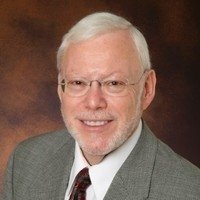How Low (on Energy and Carbon) Can Buildings in China and the U.S. Go?
Cities consume 70% of global energy, with building construction and operation creating the largest energy footprint. Buildings are energy hungry in both the United States and China, using 40% and 20% of urban energy, respectively. In the United States and China, the real estate and construction sectors generate 40% of each country’s carbon emissions.
At this May 8th meeting, CEF, the Kissinger Institute, and the Urban Sustainability Lab are co-hosting speakers from U.S. and Chinese companies and NGOs to discuss how their organizations are working to lower the energy, pollution, and carbon footprints of the two largest construction sectors and some of the fastest growing real estate markets in the world. Ai Luming, Chairman of the Society of Entrepreneurs and Ecology (SEE), a Chinese foundation at the forefront of integrating sustainability into China’s energy-intense building sector, will introduce their Green Supply Chain in Real Estate Industry Initiative that is promoting market-driven, voluntary emission reduction activities from suppliers and is creating an online environmental information disclosure system for construction materials. Cindy Ortega, Chief Sustainability Officer at MGM Resorts International will talk about MGM’s leading sustainable construction initiatives, from building LEED certified resorts to developing a solar array to power 30% of its Southern Nevada operations. Following the opening presentations speakers from SEE, Natural Resources Defense Council, and U.S. Green Building Council will join in the conversation making brief comments on their efforts to decrease energy and pollution footprints of urban landscapes in both the United States and China.
This event will be broadcast live on the Wilson Center and CEF's Facebook pages.
Keynote Speakers

Moderator

Panelists



Hosted By

China Environment Forum
China’s global footprint isn’t just an economic one, it’s an environmental one. From BRI investments in Africa and Asia to its growing presence in Latin America, understanding China’s motivations, who stands to gain - and who stands to lose - is critical to informing smart US foreign policy. Read more


Kissinger Institute on China and the United States
The Kissinger Institute works to ensure that China policy serves American long-term interests and is founded in understanding of historical and cultural factors in bilateral relations and in accurate assessment of the aspirations of China’s government and people. Read more


Urban Sustainability Laboratory
Since 1991, the Urban Sustainability Laboratory has advanced solutions to urban challenges—such as poverty, exclusion, insecurity, and environmental degradation—by promoting evidence-based research to support sustainable, equitable and peaceful cities. Read more
